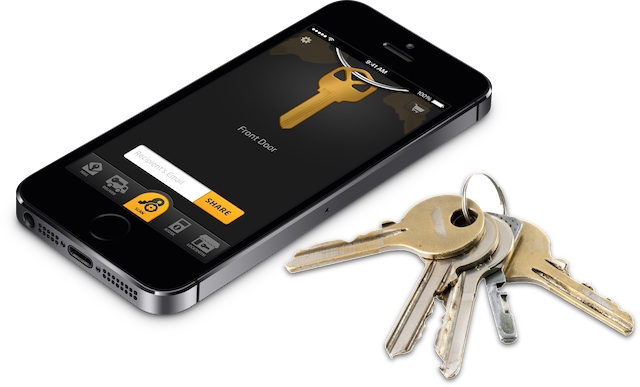House keys have joined the digital world of endless possibilities – so if you lose them you will no longer be stuck outside in the rain. There are now available services that allow you to scan your keys with a camera, store a 3D model and print off temporary plastic copies at the click of a button.
House keys have joined the digital world of endless possibilities – so if you lose them you will no longer be stuck outside in the rain. There are now available services that allow you to scan your keys with a camera, store a 3D model and print off temporary plastic copies at the click of a button. The phenomenon is to replace expensive locksmiths with cloud storage and omnipresent 3D printers.
AT present, there are three main players: US firms Keys Duplicated and KeyMe, and Belgium-based Keysave. None are currently available in the UK.
Keysave ensures that you go to them to have a professional scan; a special holder holds the key on a rotating platform while a webcam takes footage and custom software automatically creates a 3D model.
The company then stores a digital copy of your keys on its secure servers and allows you to download the file and print a temporary plastic replacement at “your local 3D print shop” when you find yourself locked out. It will be fragile compared to a metal key, but it will do the job to get you inside where you can recover your spare set.
At present, “local 3D print shop” may be non-existent, or so “local”, but changes are to come. The cost and quality of printers are plunging and rising. Ultimately you could just be popping next door to borrow your neighbour’s printer for five minutes.
Keys Duplicated and KeyMe both work on a slightly different platform. Smartphone apps allow you to scan your keys yourself and then order permanent metal replacements through the post. Keys Duplicated charges just $6 (£3.50) and plans to introduce some types of car keys as well as the existing Yale door keys to its offerings soon.
Consequently this brings troublesome and worrying security problems as some of these apps only require a smartphone app to scan a set of keys and order duplicates. How often do you leave your house keys unattended long enough for someone to scan them with a camera?
Rival KeyMe says that its scanning process “is designed to strictly prevent any use of flyby pictures. Keys can only be scanned when off of the keychain, placed on a white piece of paper, and taken from 4″ away. Furthermore, we require that users scan both sides of the key.”
However, a recent investigation by Wired found that a reporter was able to surreptitiously photograph a neighbour’s house key in 30 seconds, while still on a keyring, and have a replacement within an hour via KeyMe.
It seems that, like our credit cards, we should never let our keys out of sight for fear that they could be copied in seconds. Even so, we must keep them out of sight, because they can be duplicated from a simple digital photograph. Even leaving your keys on your desk could leave a window of opportunity open for a burglar to snap them, copy them and use them to clear out your home of valuables.







